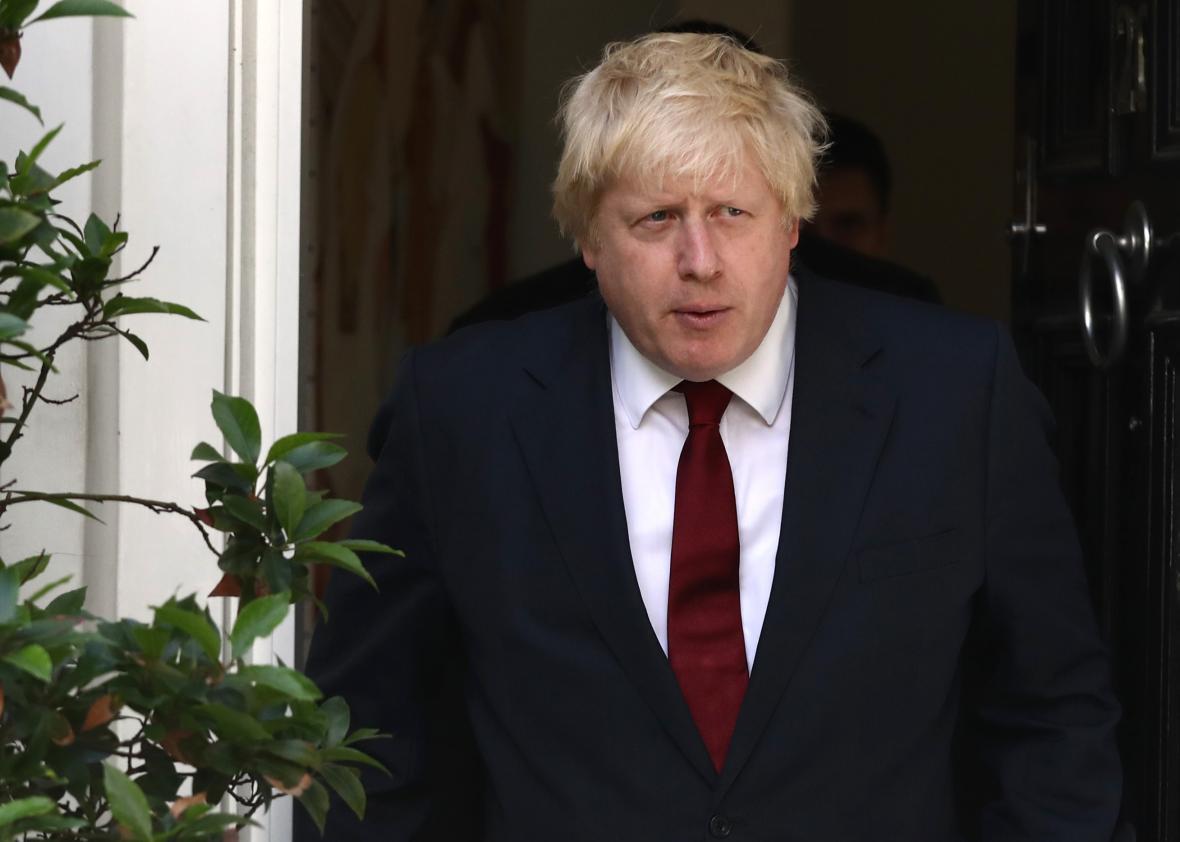For all that Thursday night’s Brexit vote was a historic rebuke of the European Union, nothing is actually different today. Britain is still a member of the EU, and will be for some time. And while there’s probably too much political momentum to stop this process now that it’s rolling, there’s a small, but not trivial, chance that the Brexit might not happen at all.
The referendum wasn’t legally binding, just advisory. Technically, the British government doesn’t have to do anything, though it’s obviously under an enormous amount of political pressure to get things moving. The first concrete result of the vote will be the ignominious resignation of Prime Minister David Cameron, who campaigned for the “Remain” side, in opposition to much of his own party, and lost. Cameron said today that he will leave 10 Downing Street before the Conservative Party conference in October, and will leave the task of beginning negotiations on withdrawal to his successor. (Cameron had previously said that withdrawal would begin immediately after the vote if “Leave” won, but that seems to have been a bluff.)
How the Brexit will go down is a little unclear—after all, no country has ever tried to leave the EU before. (Yes, yes, Greenland. I see you. Not the same thing.) The mechanism by which countries leave the EU is Article 50 of the 2007 Lisbon Treaty. Under Article 50, once a member state notifies the European Council of its intention to withdraw, it has two years to negotiate the terms of that withdrawal and hammer out a new relationship with the EU on issues like trade and immigration. Once the two years are up, the treaties between the EU and the country are severed, whether an agreement has been reached or not.
Could leaders in Brussels find a way to fudge this deadline? Sure, why the hell not. But once Article 50 is invoked, the process is irreversible. The U.K. can’t back out. The terms of Britain’s exit, though not the exit itself, will be subject to veto by all 27 of its very cranky EU counterparts.
EU leaders want Britain to invoke Article 50 as quickly as possible, to end political uncertainty and restore some confidence to financial markets. But leaders of the “Leave” campaign say there’s no rush and argue that there should be informal talks on withdrawal before the article is invoked and the clock starts ticking. Yes, that’s right. The people behind the Brexit are in no hurry to actually implement it. After all, even the leavers want to maintain an advantageous trade relationship with the EU, and two years is not a long time to negotiate one. The EU, on the other hand, will be in no mood to make this easy for the U.K., as it tries to prevent other member states from planning their own Nexits, Frexits, and Auxits.
There’s also a possibility that we could see a parliamentary vote on the Brexit before Article 50 is invoked. This could get interesting, as a majority of the 650 members of the House of Commons favor remaining in the EU. Whether they would overrule their own voters is another question. Members of the Scottish National Party are safe anti-Brexit votes, but pro-EU Conservatives would be afraid of losing more ground to the insurgent U.K. Independence Party. The Labour Party seems to be in complete disarray and in the course of ousting its own leader.
All this means that the process is likely to be long and aggravating, involving not just negotiations with Brussels but the tricky question of which of the EU’s regulations Britain will choose to maintain as British law and what’s going to happen to Scotland and Northern Ireland.
How and whether the Brexit proceeds will depend in large part on who the Conservative Party chooses as its next leader and prime minister. The betting markets currently favor Boris Johnson, the former London mayor and smooth-talking mop-topped goofball who took a major political gamble by becoming the public face of the “Leave” campaign in defiance of Cameron, and is now riding a surge of support. Theresa May, the current home secretary and a “Remain” supporter, is another possibility.
Given that, anecdotally, it seems that a number of pro-“Leave” voters are already experiencing buyer’s remorse, and the British economy will likely continue to take a beating, there’s at least a possibility that a pro-“Remain” government could just wait this out by indefinitely postponing Article 50 ratification. By the time the next general election rolls around in 2020, it’s possible Brexit-happy voters will have lost their nerve and this whole thing could just die on the vine.
Even if Johnson or another pro-“Leave” Tory takes over, that doesn’t necessarily mean Brexit is imminent. Johnson has said that the result won’t mean “pulling up the drawbridge” and that there’s “no need for haste” in severing the country’s EU ties. Could Johnson really use the Brexit debate to launch himself into the prime minister’s office and then not even follow through on his signature issue? Yes, he could definitely do that.
